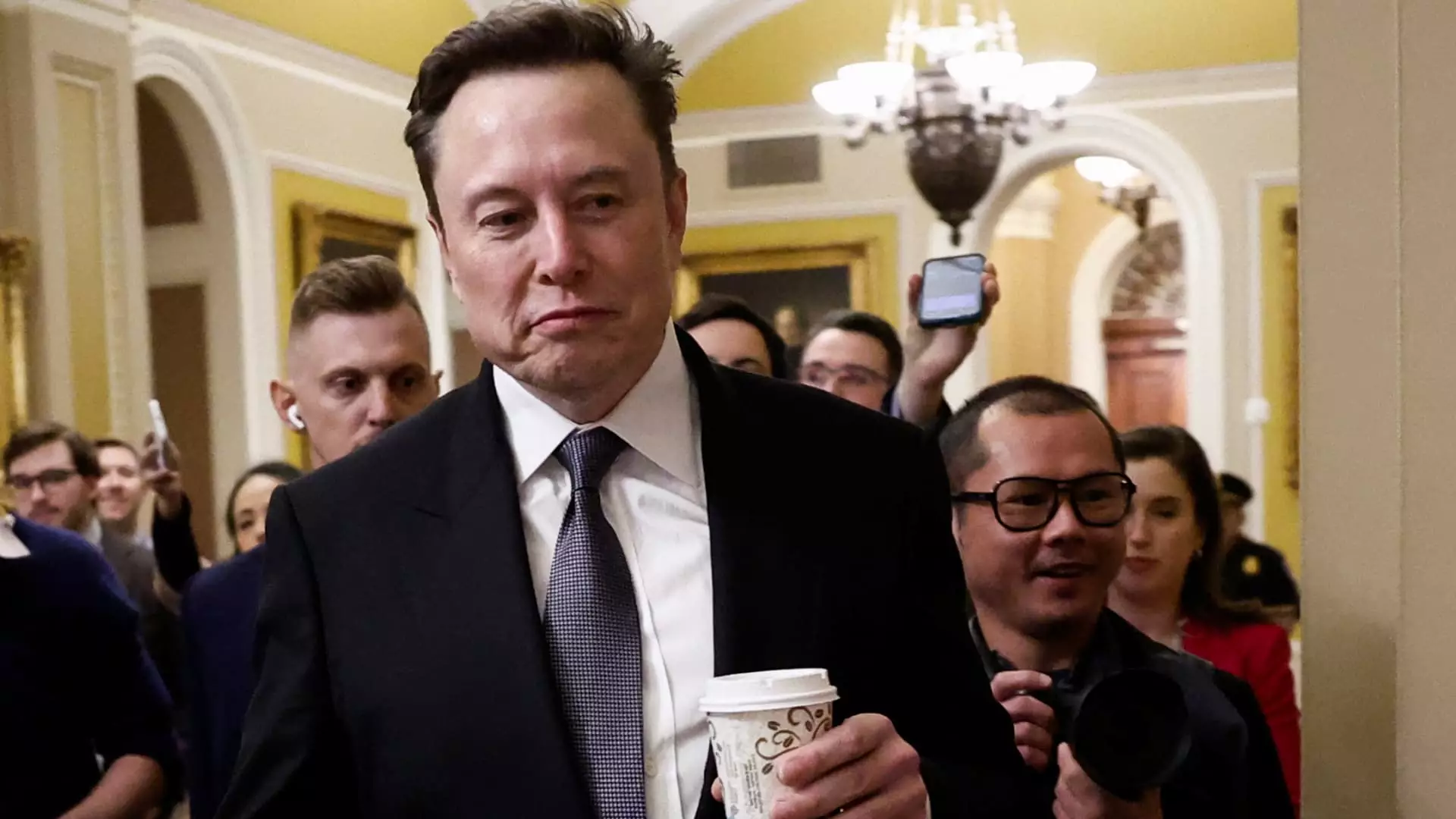The ongoing dance between business moguls and political figures can often lead to significant implications for national policies and international relations. Recently, House Democrats have voiced strong criticisms concerning the perceived influence of Elon Musk on Congress, particularly regarding a government funding bill intended to regulate American investments in China. This situation highlights the intricate connections between commercial interests and legislative actions in a rapidly evolving global landscape.
Last weekend, Congress took action to avert a government shutdown through a stopgap funding bill. However, Democrats, including Representatives Jim McGovern and Rosa DeLauro, asserted that the legislation fell short of its potential due to Republican capitulation to Musk’s interests. The original proposal included crucial provisions that aimed to curb investment flows into China while simultaneously safeguarding American jobs and advanced technologies, such as artificial intelligence and quantum computing. McGovern lamented on social media that the opportunities for enhancement were squandered, suggesting that Musk played a pivotal role in derailing these efforts.
Musk’s business interests, particularly with Tesla’s manufacturing capabilities in China, are at the heart of this controversy. With Tesla as the only foreign automotive entity operating a factory in China without local partnerships, concerns arise about how Musk’s corporate strategies could detract from U.S. technological sovereignty. By establishing a battery plant alongside its Shanghai factory and eyeing the development of self-driving technologies in the region, Musk’s maneuvers expose him to potential conflicts of interest concerning national security.
McGovern’s strong statements raise crucial questions about the pressure exerted on American businesses operating in China. Musk’s need to maintain favorable relations with Chinese officials becomes evident in light of his ambitious plans for his companies in that territory. His proposals for an AI data center in China alongside the continued operation of SpaceX’s Starlink service—allegedly withheld during a tense period surrounding Taiwan’s status—illustrate a complex balancing act. Taiwan remains a delicate issue in Sino-American relations, with Musk’s decisions potentially exacerbating these tensions.
DeLauro underscored the scrutiny surrounding Musk’s dealings by characterizing his alliances with the Chinese Communist Party as alarming. She emphasized Musk’s dependency on the Chinese government for the approval of his ventures, suggesting that such ties compromise the integrity of U.S. national security interests. This narrative exposes a broader issue: the intertwining of corporate ambitions with the geopolitical chess game between the United States and China.
As the legislative pushback against Musk’s influence materialized, political tensions escalated. DeLauro’s reference to Musk as “President” in her communications was notable, drawing a parallel between the tech billionaire’s impact on policy and that of the sitting U.S. president. This distinction became more pronounced as the political maneuvers unfolded, particularly following former President Donald Trump’s apparent encouragement for Republicans to withdraw support for the budget proposals aimed at curtailing Musk’s power.
Musk’s reaction to DeLauro’s criticism, branding her as an “awful creature,” reflects a combative approach that has characterized his interaction with political figures. Since acquiring and rebranding Twitter to X, Musk has leveraged the platform for both business interests and political engagement, notably aligning himself with Trump. His substantial financial contributions to the Trump campaign illustrate a deepening relationship that extends beyond mere advisory roles.
As the narrative continues to develop, it brings forth significant questions related to the role of billionaires in shaping policy and the implications of their influence on democratic processes. The intersection of Musk’s corporate aspirations with national interests reveals a shifting landscape where business leaders may increasingly guide political decisions. This raises concerns about accountability, ethical governance, and the prioritization of public over private interests.
The recent clash between Musk’s business objectives and congressional efforts to manage U.S. investments in China epitomizes a broader struggle where capitalism intersects with national security. As American lawmakers grapple with the implications of such influential figures, the balance between fostering economic growth and safeguarding national interests remains a contentious battlefield. The coming months will likely reveal whether Congress can chart a course that reconciles these competing interests or whether the power wielded by figures like Musk will continue to overshadow legislative intentions.


Leave a Reply